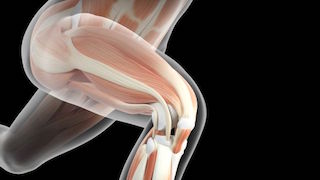People with fit, strong legs have been found to also retain more brain power as they age, a further indication that riding a bike for exercise has benefits for brain function as well as physical health.
In a remarkable, decade-long study of 300 female twins, researchers at Kings College, London, have demonstrated that leg power is a valuable marker for future cognitive fitness. Leg power was measured at the start of the study for both speed and power of leg extension, while brain power was measured at both the start and the end of the study using computerised tasks that tested memory and mental processing skills.
Generally, the twin who had more leg power at the start of the study sustained their cognition better and had fewer brain changes associated with ageing measured after 10 years. And the finding remained when other known lifestyle and health risk factors for dementia were included.
Although a number of physical aspects were tested, it was found that in general the twin with greater leg power at the start of the study sustained cognition better and experienced fewer age-related brain changes after 10 years. The researchers tracked the health of more than 150 pairs of twin sisters aged between 43 and 73 at the start of the study.
The study, funded jointly by the National Institute for Health Research and the Wellcome Trust. The work builds on previous research indicating that exercising muscles releases hormones that can encourage nerve cells to grow.
Exercise releases chemicals in the body that may boost elderly brains, say the scientists in the journal, Gerontology. According to lead researcher Dr Claire Steves: “When it came to cognitive ageing, leg strength was the strongest factor that had an impact in our study.”
Other factors such as heart health were also important, but the link with leg strength remained even after we accounted for these. “We think leg strength is a marker of the kind of physical activity that is good for your brain.”
Alzheimer’s Research UK director of research Dr Simon Ridley said: “We know that keeping active generally can help reduce dementia risk, and it’s important to take into account strength training as well as aerobic exercise.”
Reblogged from Bicycle Network, Health policy & studies.
Ride On content is editorially independent, but is supported financially by members of Bicycle Network. If you enjoy our articles and want to support the future publication of high-quality content, please consider helping out by becoming a member.

